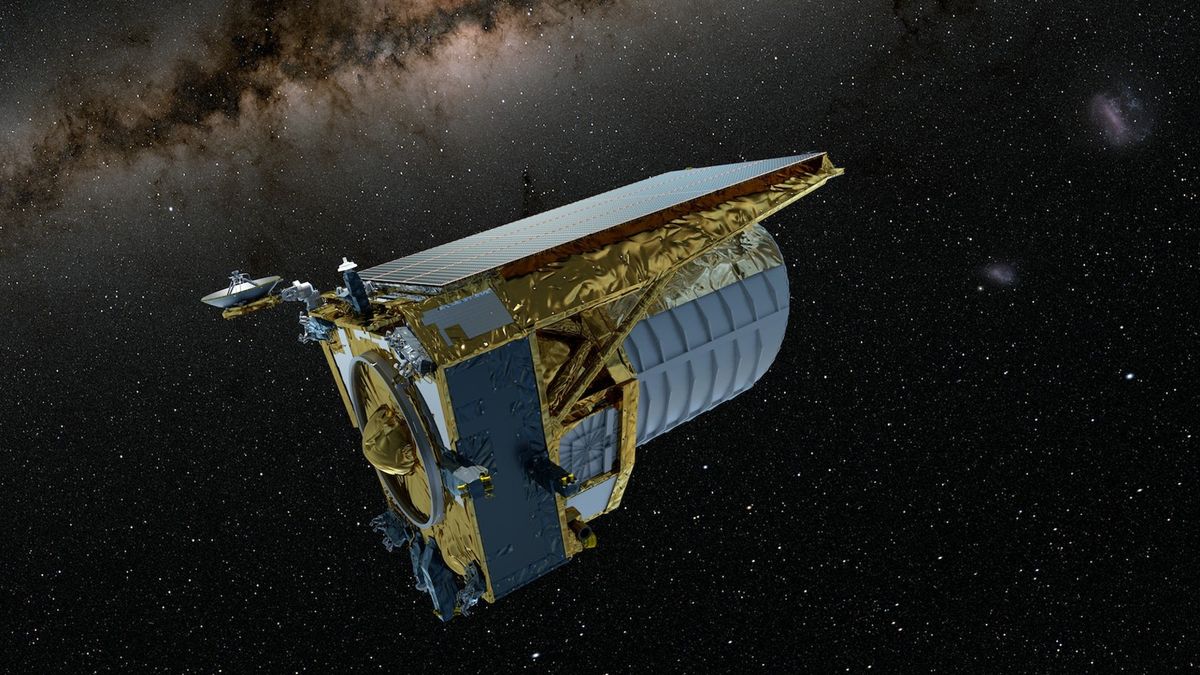The Euclid spacecraft will transform how we view the 'dark universe'
By Robert Nichol published 28 May 2023
The European Space Agency’s (ESA) Euclid satellite completed the first part of its long journey into space on May 1, 2023, when it arrived in Florida on a boat from Italy.

Graphic illustration of the Euclid spacecraft in space against a background of stars.
Euclid is set to launch this year on a rocket built by SpaceX. (Image credit: Work performed by ATG under contract for ESA, CC BY-SA)
The European Space Agency’s (ESA) Euclid satellite completed the first part of its long journey into space on May 1, 2023, when it arrived in Florida on a boat from Italy. It is scheduled to lift off on a Falcon 9 rocket, built by SpaceX, from Cape Canaveral in early July.
Euclid is designed to provide us with a better understanding of the "mysterious" components of our universe, known as dark matter and dark energy.
Unlike the normal matter we experience here on Earth, dark matter neither reflects nor emits light. It binds galaxies together and is thought to make up about 80% of all the mass in the universe. We've known about it for a century, but its true nature remains an enigma.
Dark energy is similarly puzzling. Astronomers have shown that the expansion of the universe over the last five billion years has been accelerating faster than expected. Many believe this acceleration is driven by an unseen force, which has been dubbed dark energy. This makes up about 70% of the energy in the universe.
More:
https://www.space.com/the-euclid-spacecraft-will-transform-how-we-view-the-dark-universe
